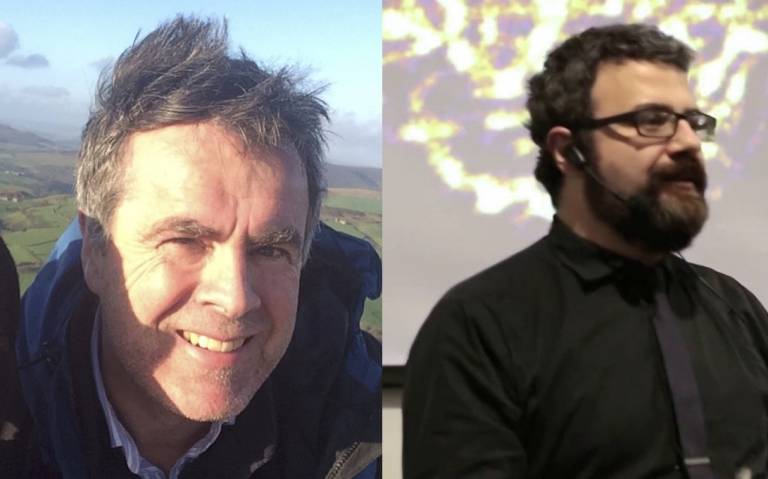Prof McMorrow and Prof Battaglia awarded EPSRC Established Career Fellowships
6 June 2016

Professor Giuseppe Battaglia, UCL Chemistry and Professor Des McMorrow, Vice-Dean for Research within UCL Mathematical & Physical Sciences and LCN researcher, have both been awarded prestigious EPSRC Established Career Fellowships.
The EPSRC fellowships are designed to help develop future leaders with Science, Technology, Engineering and Math (STEM) skills necessary for the UK to compete on the global stage, generating knowledge, new ideas and technologies essential to support businesses, government, and national priorities. The award runs for five years from 1 June 2016.
Professor Battaglia's research programme is aimed to design a completely new platform for drug delivery. It will combine an existing repertoire of molecular engineering tools based on established approach to design responsive nanoparticles known as Polymersomes. These will then be integrated with new features using clinically safe and biodegradable components that will make them super-selective, personalisable and able to deliver combination therapeutic payloads into cancer tissues. By the end of the five years, nanomedicine discovery will be combined with clinical oncology to propose a completely new approach to cancer therapy that can be tailored to the needs of the individual patient.
"I'm extremely delighted for this award it's a great honour for me and indeed a critical step forward to allow us to push our physical science into future clinical applications", said Professor Battaglia.
Professor McMorrow's research is focused on understanding how electrons organise themselves in solids to produce the diverse range of phenomena encountered in modern condensed matter physics. The major theme of the proposal is the development of novel X-ray techniques which will offer unprecedented insights into the atomic scale order and excitations in solids.
Professor McMorrow commented "I am absolutely delighted and honoured to be awarded this Fellowship. It provides me with stable funding for five years and will allow me to pursue some challenging research goals that without it would otherwise be difficult. This is a very exciting time for X-ray physics with X-ray lasers promising to transform our ability to understand the atomic scale structure of materials. I very much look forward to playing my part in this endeavour."
 Close
Close




